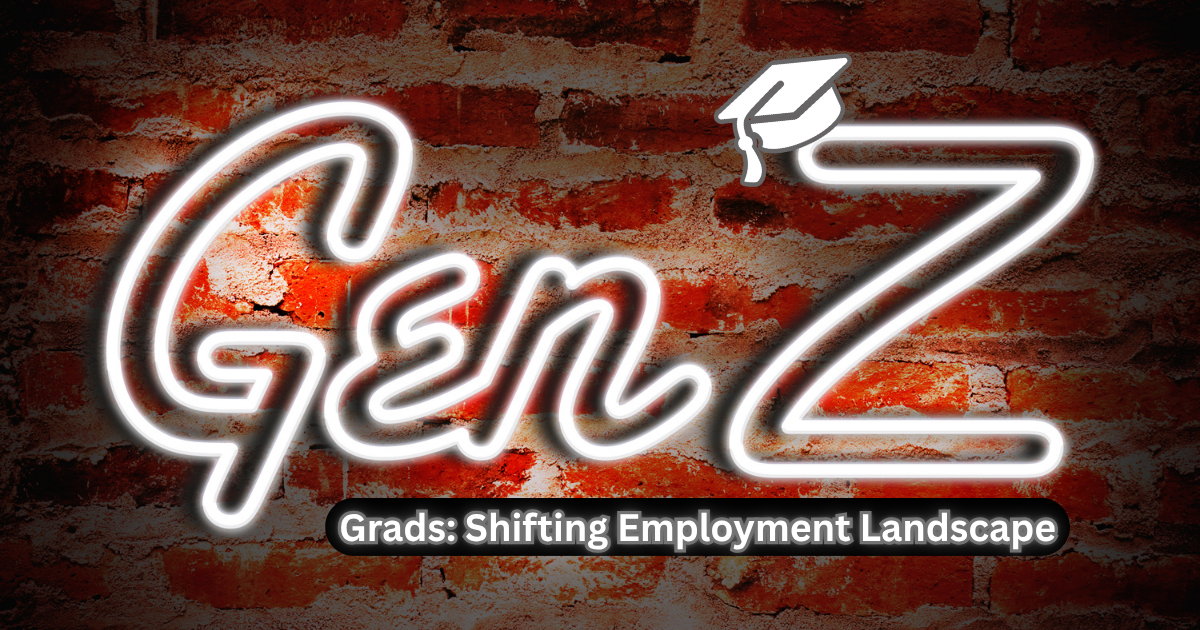Gen Z Grads: Shifting Employment Landscape

Have you ever wondered if that college degree you're working towards (or thinking about) will genuinely pay off? For Gen Z Grads: The Shifting Employment Landscape is a significant topic, as many young people are now questioning whether a traditional four-year college remains the golden ticket to success it once was. The dream of a degree leading to guaranteed economic security is unraveling, pushing a new generation to explore different paths.
The Rising Cost of College
One of the biggest reasons for this shift is the skyrocketing cost of college. Imagine this: the average yearly cost for a four-year public college has jumped by more than 140%. For private universities, the increase has been about 110%. This means the total cost for a public school can reach around $110,000, and for a private school, it could be as much as $225,000. Some Gen Z individuals even discuss a "$60,000 a year price tag." In the past, college was "incredibly affordable" – a year at a state university in the 1940s might have cost less than $100, which is only about $2,300 in today's money.
A Challenging Job Market for Graduates
Despite these substantial costs, the job market often fails to reward college graduates as they are expected to. For young men especially, the "job market boost" that a degree used to provide has "vanished". Recent data shows that young male college graduates (aged 22 to 27) have nearly the same unemployment rate as those without a degree. In 2010, the difference was significant, with non-graduates facing significantly higher unemployment rates.
Approximately 23% of Gen Z workers regret attending college, and 19% feel that their degree has not helped advance their career. They're facing "overwhelming student loan debt" and feel "the math hasn't worked since 2008" for the return on investment. As of 2023, approximately 58% of recent Gen Z graduates were still seeking employment. Even worse, nearly half of Gen Z job seekers feel their education is "already obsolete" due to the rise of AI. Companies are even starting to drop degree requirements for many entry-level jobs.
The Allure of Skilled Trades
Due to these challenges, many Gen Z men are opting for a different path: vocational trades. This is why vocational school enrollment has increased by approximately 18% since 2019. These programs, such as welding, plumbing, or electrical work, are significantly less expensive. For example, a nine-month welding certification costs $22,000, which is far less than four years of university.
These skilled trades often lead to high-paying and stable careers. Starting salaries for skilled workers have increased by over 25% from 2019 to 2025, and hiring for these "blue-collar" jobs has consistently been higher than for "white-collar" jobs. Some young people are even starting their successful businesses in these fields immediately after high school.
What Does This Mean for the Future?
Conclusion: A New Path Forward
The employment landscape is indeed shifting, with Gen Z leading the charge in rethinking traditional education. It's no longer just about getting a degree, but about acquiring skills that are in demand and offer a clear path to financial stability. This generation's willingness to "pivot" and choose different routes is shaping a new future for work.
What are your thoughts on this evolving landscape? Share your perspective in the comments below!
Frequently Asked Questions (FAQs)
Is college still worth it for Gen Z?
- While college degrees can still lead to higher lifetime earnings, many Gen Z individuals are finding that the high cost and competitive job market for graduates make the return on investment questionable, especially compared to the past.
Why are skilled trades becoming more popular?
- Skilled trades offer a less expensive path to education, often lead to stable and high-paying jobs, and are in high demand due to an aging workforce and increased investment in infrastructure.
How is AI affecting job prospects for graduates?
- Nearly 50% of Gen Z job seekers believe their education is becoming obsolete due to the rise of AI. AI advancements are simplifying tasks and leading companies to drop degree requirements, focusing more on practical skills and AI literacy.











